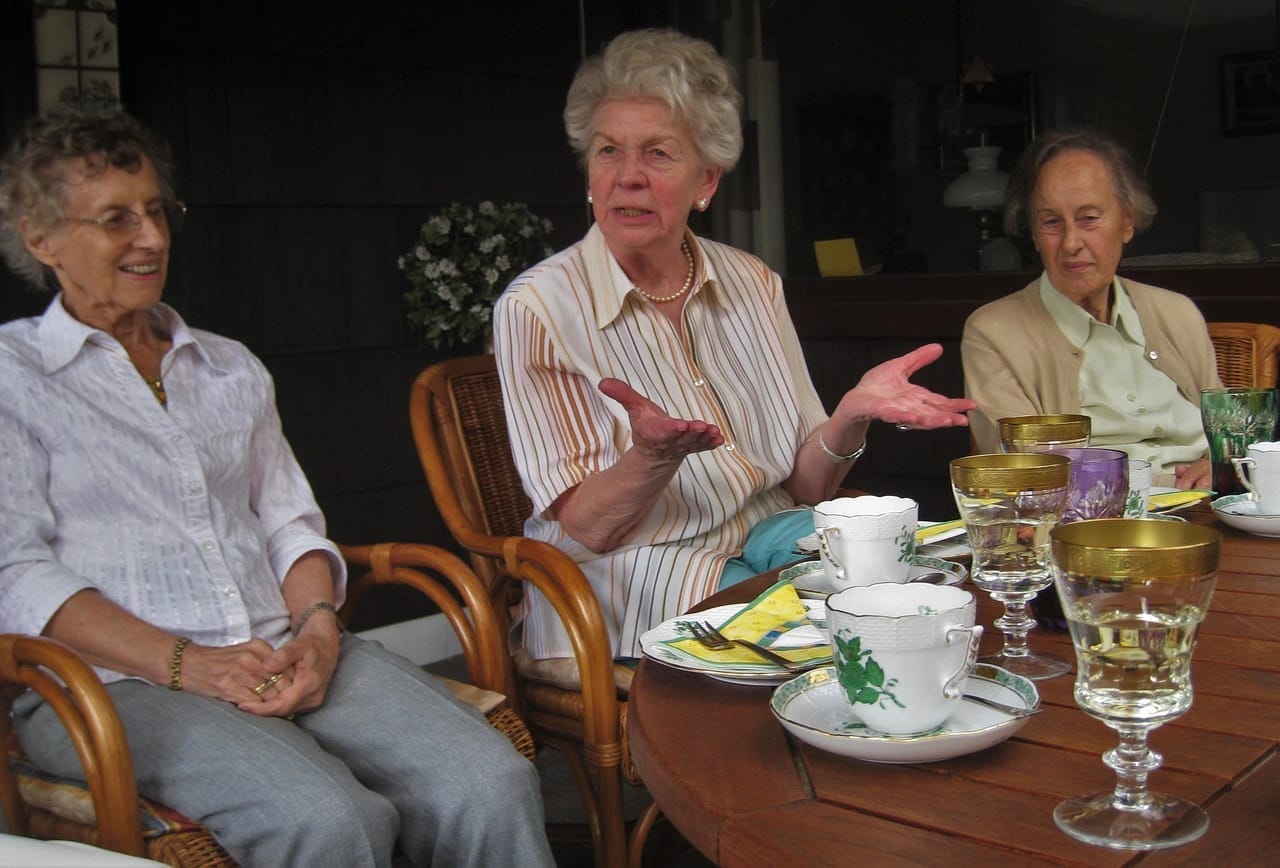Are you in North Carolina and looking for individual therapy or parent counseling?
Visit Flip Consulting and Counseling to schedule a free consultation
Written By Edla Prevette
The ADHD Sandwich: When Your Brain is the PB&J and You're Trying to Keep It All Together
You're staring at 17 doctor appointments on your calendar – some for your kids, some for your aging parents, and somehow you've managed to double-book yourself twice. Your ADHD brain is frantically task-switching between medication reminders for three different generations, school pickup schedules, and trying to remember if your mom took her blood pressure pills this morning.
Welcome to what clinical social worker Kristin Koliha calls "The ADHD Sandwich" – that uniquely challenging space where your already-overwhelmed ADHD brain becomes the command center for an entire multigenerational family.
If you're a woman who was diagnosed with ADHD later in life (often triggered by your child's diagnosis), you're part of a growing population navigating one of the most complex caregiving scenarios possible. And the traditional sandwich generation advice? It wasn't written for brains like ours.

The Perfect Storm: When ADHD Meets Multigenerational Caregiving
"One of the things that has been such a challenge is the sheer amount of task switching that you have to do when you're a caregiver," explains Kristin, who specializes in helping newly diagnosed ADHD adults. "For an example, like I have to manage my kiddos' doctor's appointments. But then when you're also caregiving, you have to start to manage your adult parent... It's like all of a sudden you've got 17 doctors appointments versus just two or three."
But here's what makes the ADHD sandwich generation experience uniquely difficult: it's not just task switching – it's role switching.
"When you're the parent and you're taking care of these tasks, you can have the final say, you can put your foot down and say, 'Nope, it's a two o'clock appointment. That's the way it is,'" Kristin notes. "But when you're dealing with another adult, you have to take that into consideration."
This role reversal – going from being the child to essentially parenting your parents – creates an emotional and cognitive load that can feel overwhelming for anyone, but particularly for ADHD brains that already struggle with executive function.
The Hidden Genetic Component
Here's something that adds another layer of complexity to the ADHD sandwich generation experience: ADHD is highly genetic. Research shows up to a 90% likelihood of passing ADHD to your children, which means if you have ADHD, there's also a good chance one of your parents does too – even if they were never diagnosed.
"When I got my diagnosis and I reflected back on my parents... I looked at how I connected with my dad and how my mom never got us and how my dad, the things, and I look at as he was aging, the things he was struggling with makes so much sense in light of my diagnosis," Kristin shares.
This generational pattern means you might be managing ADHD symptoms in yourself, your children, AND your aging parents – all while working with strategies that your undiagnosed parents might instinctively resist or struggle to understand.

The Upside: ADHD as Your Secret Caregiving Superpower
Despite the challenges, having ADHD can actually make you an exceptional caregiver in some surprising ways:
Creative Problem-Solving
"We are amazing problem solvers," Kristin emphasizes. "So give us a problem, we're going to try to figure it out. And we are going to have really creative solutions to solving that problem."
She shares a perfect example: When her father-in-law was in rehab on his anniversary, while everyone else was stuck wondering what to do, Kristin thought outside the box. "I said, 'you know what, where do you want dinner from? I'm going to bring you dinner.' So literally brought in dinner, set the table, snuck in wine, and I said, 'I'll take you out to dinner.'"
Hyperfocus Advantage
That ADHD superpower of hyperfocus? It's actually perfect for caregiving research. "We're going to find page 7,000 on Google of that product that they need that's going to help them to live life as independently as they can," Kristin notes.
Thinking Outside the Box
ADHD brains excel at seeing solutions others miss, offering different perspectives that can be invaluable when traditional approaches aren't working.
The Challenge: When Impulsivity Meets Emotional Complexity
Of course, ADHD traits can also create caregiving challenges. The impulsivity that comes with ADHD doesn't just mean making quick decisions – it also means quick emotional reactions.
"It also comes off in quick reactions, quick emotional impulsivity, saying things that maybe we wish we could grab those words and pull them back as fast as possible," Kristin explains. "Or making just quick sheer decisions because we don't want to have to think anymore."
This is particularly challenging when you're dealing with the complex emotions that come with watching your parents age while also managing the stress of raising children.
Practical Strategies for the ADHD Sandwich Generation
1. Externalize Everything
"Don't hold things in your head," Kristin advises. "Use checklists, calendars, reminder apps, offload as much as you can. Working memory is terrible. And when you're adding another essentially person that you're responsible for their care, the amount just, it doesn't increase by one, it increases exponentially."
Action steps:
Create separate color-coded calendars for each family member (Kristin even has one for her golden retriever)
Use visual systems that work for ADHD brains
Set up automatic reminders for medications, appointments, and tasks
Keep master lists organized by category or family member
2. Break Down Overwhelming Tasks
Large caregiving tasks can feel paralyzing to ADHD brains. Kristin uses the example of applying for Medicaid: "The overarching goal is apply for Medicaid. My God, do you know how many steps are involved in applying for Medicaid? There's probably 7,000 steps. Find the birth certificate. Find my grandfather's death certificate."
The solution: Break tasks into tiny, manageable chunks and don't try to tackle them all at once.
3. Time Blocking
Instead of constantly switching between caregiving roles, try batching similar tasks. "Time block the tasks that you're doing," Kristin suggests. "Taking if you got a day, like half a day when all you do is stuff, the caregiving stuff for your parent... it frees up a little bit of the space in your brain."
4. The Pre-Check Strategy
Here's a brilliant ADHD hack: "Do you ever write stuff on your list and then mark it off?" Kristin asks. "I will create... I'm like, oh look at that. I did that email already today, check, look at me."
This works because it combats the "blank page syndrome" and creates momentum. Once you're in motion, you continue in motion.
Setting Boundaries Without Guilt
For ADHD caregivers, boundary-setting is both crucial and challenging. The combination of rejection sensitive dysphoria and perfectionism can make it feel impossible to say no or ask for help.
The Monthly Planning Meeting
Kristin has implemented a brilliant strategy with her mother: "We're going to meet monthly and have either dinner, tea or coffee, and we're gonna hash out the things that need to get done that are the long term planning."
This structured approach works because it:
Gives you time to emotionally prepare
Creates a consistent framework for difficult conversations
Allows you to send an agenda ahead of time
Builds trust by showing up consistently
Prevents crisis-mode decision making

Remember: You Can't Pour from an Empty Cup
"Put your oxygen mask on first," Kristin emphasizes. "We've got to make sure that we're taking care of ourselves and we're doing really good self care... We're only going to be as good of a caregiver as we can function ourselves."
The Power of Self-Compassion
Perhaps most importantly for ADHD sandwich generation caregivers is practicing self-compassion. "Being kind with yourself. As ADHDers, we tend to struggle with perfectionism, guilt, and trying to do everything 100%, and it's not realistic."
Kristin recommends working on positive self-talk and giving yourself grace: "It's not an easy chapter of life."
Delegate, Automate, and Let Go
The key to surviving the ADHD sandwich generation experience is recognizing that you don't have to do everything yourself:
What you can delegate:
Grocery shopping and meal preparation
Transportation for non-critical appointments
Basic household tasks
Some caregiving responsibilities to other family members
What you can automate:
Bill payments
Prescription refills
Grocery delivery
Calendar reminders and notifications
What you can let go:
The idea that everything has to be perfect
The belief that you're the only one who can handle certain tasks
Guilt about asking for help
The pressure to be available 24/7
Understanding the Developmental Reality
One crucial insight that can reduce frustration is understanding that aging is developmental. Just as you wouldn't expect a 2-year-old to behave like a 12-year-old, you can't expect an 83-year-old to function like they did at 60.
This perspective shift can help reduce the frustration that comes with watching your parents change and need more support. It's not about them being difficult – it's about normal developmental changes that require different strategies and approaches.
Building Your Support Network
ADHD sandwich generation caregivers often resist asking for help, but building a support network is essential:
Professional support:
ADHD coaches who understand caregiving challenges
Support groups specifically for ADHD caregivers
Mental health professionals familiar with ADHD and caregiving stress
Personal support:
Friends who understand your situation
Family members who can share responsibilities
Online communities of other ADHD caregivers
Neighbors who might be willing to help with small tasks

The Genetic Awareness Advantage
Understanding the genetic component of ADHD can actually be helpful in your caregiving approach. If you suspect your parent has undiagnosed ADHD, you can:
Use strategies that work for ADHD brains (visual reminders, breaking tasks down, routine structure)
Approach their resistance to change with more patience
Recognize that their "difficult" behaviors might be ADHD-related rather than intentional
Adapt your communication style accordingly
Looking Forward: This Season Will Pass
While the ADHD sandwich generation experience is uniquely challenging, it's also temporary. Your children are developing more independence (even if it takes longer than neurotypical kids), and you're providing your parents with dignity and support during a vulnerable time.
The skills you're developing now – creative problem-solving, systems thinking, emotional regulation under stress – are valuable life skills that will serve you long after this intensive caregiving season ends.
Action Steps You Can Take Today
1. Audit your current systems: What's working? What's causing the most stress? Where can you implement better organization?
2. Identify your ADHD triggers: When do you feel most overwhelmed? What situations trigger impulsivity or emotional reactions?
3. Start with one small change: Don't try to overhaul everything at once. Pick one strategy (like color-coded calendars) and implement it consistently.
4. Practice self-compassion: When you make mistakes or feel overwhelmed, treat yourself with the same kindness you'd show a friend.
5. Build in buffer time: ADHD brains need transition time. Build extra time into schedules for both yourself and your family members.
Remember: You're Doing Something Extraordinary
Managing ADHD while caring for multiple generations isn't just difficult – it's extraordinary. You're using your unique strengths to solve complex problems, create innovative solutions, and provide care for the people you love most.
Yes, there are days when it feels like too much. Yes, there are moments when your ADHD symptoms feel like they're working against you rather than for you. But there are also moments when your creative problem-solving saves the day, when your ability to think outside the box provides exactly what your family needs, and when your hyperfocus helps you find resources others might miss.
The ADHD sandwich generation experience is challenging, but you're not just managing it – you're revolutionizing what caregiving can look like when it's approached with creativity, compassion, and the unique strengths that ADHD brings to the table.
Feeling overwhelmed by the unique challenges of managing ADHD while caring for multiple generations? You're navigating one of the most complex caregiving scenarios, and your ADHD brain deserves strategies designed specifically for how you think and process information.
Schedule your complimentary caregiving consultation with Edla Prevette today and discover ADHD-friendly systems for organizing care, communication techniques that work with your brain rather than against it, and strategies to reduce overwhelm while supporting everyone in your family.
Learn More About Today's Guest Expert
Kristin Koliha is a clinical social worker with extensive experience working with ADHD diagnoses. She's a therapist, business owner, and mother of two ADHD children who was diagnosed with ADHD as an adult. She specializes in helping newly diagnosed ADHD adults understand their diagnosis and develop effective strategies. You can find her resources and support at: https://welcomehomeADHD.com
Edla Prevette specializes in helping sandwich generation caregivers develop effective communication strategies and reduce stress while caring for aging parents. With thirty years of experience as an educator and therapist, she provides research-based approaches that make caregiving feel more manageable, especially for families navigating neurodivergent needs. Learn more at edlaprevette.com.

2024 Edla Prevette | www.edlaprevette.com | Privacy Policy | Terms and Conditions | Affiliate Disclosure
